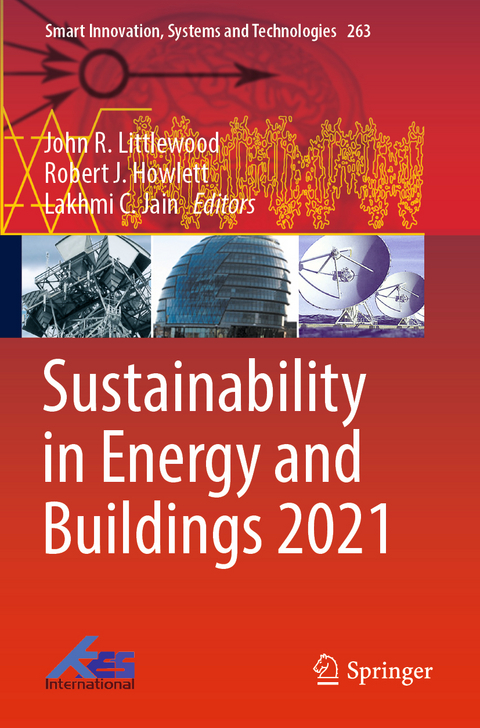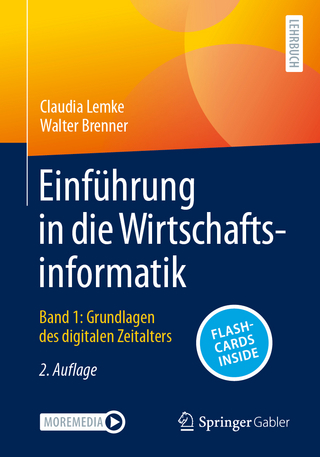
Sustainability in Energy and Buildings 2021
Springer Verlag, Singapore
978-981-16-6271-3 (ISBN)
Dr. John R Littlewood graduated in Building Surveying, holds a Ph.D. in Building Performance Assessment of Zero Heating Housing and is a Chartered Building Engineer. He is Head of the Sustainable and Resilient Built Environment Research group in Cardiff School of Art & Design and the Human Centred Design Global Academy, at Cardiff Metropolitan University (UK). He coordinates three Professional Doctorates in Art & Design, Engineering and Sustainable Built Environment, and has supervised and examined to completion 11 and 18 doctorates. John’s research is industry focused, investigating methods to optimise the fire, production, and thermal performance for existing and new dwellings during the design, manufacture, construction, operation or during and after retrofit stages. John’s current research includes working with Wales’ largest offsite manufacturer of timber frame construction systems, to increase the use of natural materials and recycling to embrace the circular economy. The outcomes of John’s research enhance occupant quality of life and increase the environmental sustainability and resilience of the built environment. He has authored, co-authored and co-edited 155 academic peer-reviewed publications, and supported the SEB international conference series since 2010. Dr. Robert Howlett is Executive Chair of KES International, a non-profit organization that facilitates knowledge transfer and the dissemination of research results in areas including intelligent systems, sustainability, and knowledge transfer. He is Visiting Professor at Bournemouth University in the UK. His technical expertise is in the use of intelligent systems to solve industrial problems. He has been successful in applying artificial intelligence, machine learning, and related technologies to sustainability and renewable energy systems; condition monitoring, diagnostic tools and systems; and automotive electronics and engine management systems. His current research work is focussed on the use of smart microgrids to achieve reduced energy costs and lower carbon emissions in areas such as housing and protected horticulture. Dr. Lakhmi C. Jain, PhD, ME, BE(Hons), Fellow (Engineers Australia) was with the University of Technology Sydney, Australia, and presently serving the Liverpool Hope University, UK. Professor Jain founded the KES International for providing a professional community the opportunities for publications, knowledge exchange, cooperation and teaming. Involving around 5,000 researchers drawn from universities and companies world-wide, KES facilitates international cooperation and generate synergy in teaching and research. KES regularly provides networking opportunities for professional community through one of the largest conferences of its kind in the area of KES
Chapter 1. Examining the Deviation in Energy Saving Estimations Due to the Use of the Degree Days Method.- Chapter 2. Impact of Climate Zone and Orientation Angle on the Recurring Massing School Typologies in Turkey.- Chapter 3. Analysis of the influence of aerodynamic Roughness on Urban Vertical Space form: an example of Shenzhen central area.- Chapter 4. Assessing the impact of lockdown due to COVID-19 on the electricity consumption of a housing development in the UK.- Chapter 5. Embodied energy and global warming potential of radon preventive measures applied in new family houses.- Chapter 6. Automatic Architectural Drawing Labelling using Deep Convolutional Neural Network.- Chapter 7. The response of the Italian healthcare facilities to the COVID-19 pandemic: analysis of national and regional legislation.- Chapter 8. Evaluation of Circular Construction Works During Design Phase: An Overview of Valuation Tools.- Chapter 9. Landscape Integrated Photovoltaic System for a Solar Islandin the Venetian Lagoon.- Chapter 10. Leaving or sheltering? A simulation-based comparison of flood evacuation strategies in urban built environments.- Chapter 11. Numerical assessment of the impact of roof albedo and thermal resistance on urban overheating: A case study in southern Italy.- Chapter 12. The value of the colour temperature in a low light intensity design.- Chapter 13. A methodology for fast simulation of energy retrofitting scenarios of social building stock.- Chapter 14. Flood risk of Open Spaces: from microscale factors of Built Environment to risk reduction strategies.- Chapter 15. Low-cost architectural strategies to reduce heat stress in social housing for hot desert climates.
| Erscheinungsdatum | 04.10.2022 |
|---|---|
| Reihe/Serie | Smart Innovation, Systems and Technologies ; 263 |
| Zusatzinfo | 145 Illustrations, color; 39 Illustrations, black and white; XVIII, 569 p. 184 illus., 145 illus. in color. |
| Verlagsort | Singapore |
| Sprache | englisch |
| Maße | 155 x 235 mm |
| Themenwelt | Informatik ► Office Programme ► Outlook |
| Informatik ► Theorie / Studium ► Künstliche Intelligenz / Robotik | |
| Technik ► Architektur | |
| Technik ► Bauwesen | |
| Schlagworte | Green information technology • intelligent buildings • renewable energy • SEB 2021 • smart cities • smart energy • Sustainable buildings |
| ISBN-10 | 981-16-6271-1 / 9811662711 |
| ISBN-13 | 978-981-16-6271-3 / 9789811662713 |
| Zustand | Neuware |
| Haben Sie eine Frage zum Produkt? |
aus dem Bereich


